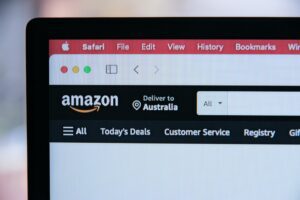
By Ese Olumhense, The Chicago Tribune
Amazon’s search for a location for its second headquarters has been unusually public, but the secrecy surrounding the incentives state and local governments are offering to lure the Seattle-based e-commerce giant could set a troubling precedent for taxpayers, a group that tracks corporate subsidies said in a Tuesday report.
Chicago and most of the other 19 locations Amazon is considering have not shared details of their bids with the public, despite the fact that Amazon did not bar them from disclosing these terms, according to Good Jobs First, the Washington, D.C., nonprofit that issued the report. The company did impose nondisclosure agreements on the 20 locations, preventing them from releasing information on the next steps in the selection
The Tribune has reported that the city, the state and Cook County teamed up to offer at least
$2 billion in
incentives
to win the project, which Amazon has said would involve a $5 billion investment and bring 50,000 high-paying jobs. Chicago-based Lucy Parsons Labs has filed a lawsuit under the
Illinois Freedom of Information Act
to compel Mayor Rahm Emanuel’s office to release records related to the city’s bid.
But absent the full text of each document governments have submitted to Amazon, the report’s authors say, residents of any location the company is considering have no way of knowing just how much this corporate courtship could cost them, including where the bidding opened or how massive the tax incentives being offered are. This gives the company “complete control of the conversations” in its talks with competing locations, according to the report, and prevents officials from communicating across localities to prevent overspending.
Taxpayers in the winning location, meanwhile, could see tax increases or decreased quality in their public services, especially if Amazon does not shoulder the costs of building the needed new schools or transit infrastructure or bear the costs of increased public safety, sanitation, water and sewage services, the report’s authors suggest.
“Amazon’s HQ2 project can go down in history as a monument to high-tech arrogance and tax-break favoritism,”
said
Greg LeRoy, executive director of Good Jobs First. “Or it can usher in a new normal in economic development that is inclusive and accountable. It’s up to the 20 governments and to Amazon. Will they seize this terrific opportunity?”
Amazon already has received nearly $1.4 billion in public subsidies for other projects, including more than $83 million in Illinois, according to Good Jobs First.
The company did not respond immediately Tuesday to a request for comment.
Chicago, which hosted a delegation from Amazon last month, has refused to disclose the specifics of its bid due to the competitive nature of the HQ2 selection process.
The city’s potential to support Amazon’s future growth is without peer, Emanuel spokesman Grant Klinzman said in an emailed statement. The company opening its new headquarters in Chicago would generate jobs throughout the region, he added.
“With an unmatched workforce and the country’s most diversified economy and connected transportation systems — Chicago is the ideal city for Amazon’s second headquarters and its unprecedented economic impact that would spark investment and create jobs throughout the city and region,” Klinzman said.
Just two cities, Toronto and Boston, have released all of their bid documents, according to a transparency study included in the Good Jobs First report. Two states, Maryland and New Jersey, have disclosed the costs of their offers because each considered special legislation to create or expand tax incentives for the project, this breakdown indicates.
So far, though, the public knows “almost nothing” about what six locations — Dallas; Indianapolis; Los Angeles; northern Virginia; Raleigh, N.C.; and Pittsburgh — included in their bids, according to Good Jobs First.
And though they haven’t announced the value of the subsidies they offered Amazon, five finalists have shared some of their bid documents: Denver; Montgomery County, Md.; Nashville, Tenn.; Philadelphia, and Washington, D.C. (Some estimates in Denver’s bid are known, the report notes, and some of the estimates have been leaked from Philadelphia’s bid.)
An additional five contenders have announced the values of their subsidies but did not share the full bid documents: Austin, Texas; Columbus, Ohio; Newark, N.J.; and New York City. California’s governor has disclosed the value of the state’s financial support for Los Angeles’ bid, the study noted.
Some information about the cost of incentives has been leaked for five competitors: Chicago, Miami, New York City, Philadelphia and Pittsburgh. Rough estimates of Atlanta’s costs have been leaked as well, according to the report.
Good Jobs First ends its report with a wash of recommendations for both Amazon and the governments of the finalist locations, namely full disclosure of bids and related documents, public hearings, commitments to institute community benefits agreements, and a promise from Amazon to pay the same tax rates as smaller retailers.
Those elements could make the trophy deal a “game-changer,” the organization argues.